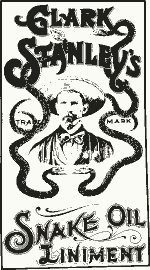
Image via Wikipedia
Recently, I found myself using the word Allopathic or Allopathy. When asked what it meant, I stumbled blindly towards the answer, " . . . a generalization of the standard practice of medicine." I lucked out. However, having looked up the word I am not inclined to use the word again. Why? It has to do with motivation and maturity. People have a right to have their opinions. You might hear them say, " . . . that is the way it is done and all other ways are false". Since the goal is to advance the efficacy our efforts we must be patient until one can demonstrate or show the value of new, different ways of restoring and maintaining our body's vitality or in any other area of life. With that purpose in mind, I believe using 'Allopathy' or 'Allopathic' to describe the main stream, standard way of today's medicine or health practitioner is counter productive. Just a useless as describing non-traditional health maintenance and renewal arts as 'snake oil' et al.
(This post acknowledges and encounter with Robin 6/8/09)
Allopathy is a term coined in the early 19th century[1] by Samuel Hahnemann[2], the founder of homeopathy, as a synonym for mainstream medicine. It was used by homeopaths to highlight the difference they perceived between homeopathy and conventional medicine, and its use remains common among homeopaths. The term derives from the Greek ἄλλος, állos, other, different + πάϑος, páthos, suffering. The distinction comes from the use in homeopathy of substances that cause similar effects as the symptoms of a disease to treat patients (homeo - meaning similar). The term allopathy was meant to contrast the homeopathic approach with those conventional medical treatments that are different from or which directly counter a patient's symptoms; hence the terms allopathic and antipathic. Homeopaths saw such symptomatic treatments as "opposites treating opposites". However, many conventional medical treatments do not fit this definition of allopathy, as they seek to prevent illness, or remove the cause of an illness by acting on the etiology of disease.[3][4]
The term allopathic was used throughout the 19th Century as a derogatory term for the practitioners of heroic medicine,[5][6] a precursor to modern medicine that did not rely on evidence. The meaning and controversy surrounding the term can be traced to its original usage during a heated 19th-century debate between practitioners of homeopathy, and those they derisively referred to as "allopaths."[7] The meaning implied by the label has never been accepted by conventional medicine, and is still be considered pejorative by some.[8][9] More recently, some sources have used the term allopathic, particularly American sources wishing to distinguish between conventional medicine and, say, osteopathic.[10][6][11]
History is full of examples of this kind of tension or Semmelweis reflex; rejecting the obvious benefits in favor of the norm.
Here is a YouTube story of a breakthrough where a Doctor looks at everything 'going on' and recognizes the obvious. Click Here and further with Univera Science (Univera White Papers)
Click here to email me or leave a comment below to go further with this discussion .



